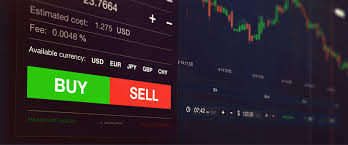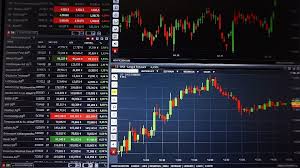
The Ultimate Guide to Forex Currency Trading Online
Forex currency trading online has become increasingly popular in recent years, attracting a diverse range of traders eager to take part in the global financial markets. This guide provides a comprehensive overview of forex trading, covering essential concepts, strategies, tools, and tips for both novice and experienced traders. If you’re looking to enhance your trading journey, consider exploring forex currency trading online Best Trading Apps to find the right platforms that cater to your needs.
Understanding Forex Trading
Forex, or foreign exchange, is the market where currencies are traded. Unlike stock markets, which are centralized, the forex market operates 24 hours a day, five days a week, allowing traders to engage in currency trading at any time. The primary goal of forex trading is to speculate on the price movements of currency pairs, which are quoted in terms of a base currency and a quote currency. For example, in the EUR/USD pair, the euro is the base currency, and the USD is the quote currency.
The Structure of the Forex Market
The forex market consists of various participants, including central banks, commercial banks, financial institutions, hedge funds, corporations, and individual traders. Each participant has different objectives, from hedging risks to speculating on price movements. The market itself is divided into different categories:
- Spot Market: In the spot market, currencies are exchanged in real-time at the current market price.
- Forward Market: Contracts are negotiated to buy or sell currencies at a future date for a predetermined price.
- Futures Market: Similar to the forward market but traded on an exchange, futures have standardized contract sizes and expiration dates.
- Options Market: Options give the trader the right, but not the obligation, to buy or sell a currency at a specific price before a certain date.
Key Concepts in Forex Trading
Before diving deeper into forex strategies, it’s essential to understand some key concepts:

- Pip: The smallest price move that a given exchange rate can make based on market convention.
- Leverage: Allows traders to control larger positions than their initial investment, increasing potential profits and risks alike.
- Margin: The amount of money required to open a leveraged position.
- Spread: The difference between the bid and ask price of a currency pair.
Developing a Forex Trading Strategy
A well-defined trading strategy is crucial for success in forex trading. Various strategies can be adopted based on individual trading styles, risk tolerance, and market analysis. Here are a few common trading strategies:
1. Scalping
Scalping involves making numerous trades throughout the day to profit from small price changes. It requires a keen eye for market movements and a solid understanding of technical analysis.
2. Day Trading
Day traders open and close positions within a single trading day, aiming to capitalize on intraday price movements. This strategy requires quick decision-making and a comprehensive understanding of market trends.
3. Swing Trading
Swing traders hold positions for several days or weeks, seeking to profit from expected price swings. This approach requires less time commitment than day trading but still necessitates a sound trading plan.

4. Position Trading
Position trading involves holding trades for weeks, months, or even years based on long-term trends. This strategy is less affected by short-term volatility and can be suitable for traders with a long-term outlook.
Risk Management in Forex Trading
Effective risk management is paramount in forex trading. Traders should implement strategies to manage their exposure to market fluctuations. Here are some tips:
- Set Stop Loss Orders: Use stop loss orders to limit potential losses on a trade.
- Use Proper Leverage: Be cautious with leverage to avoid significant losses that can exceed your capital.
- Diversify Your Portfolio: Avoid putting all your capital into one trade or currency pair.
Choosing the Right Forex Broker
Selecting a reliable forex broker is crucial for a successful trading experience. Consider the following factors when choosing a broker:
- Regulation: Ensure the broker is regulated by a reputable financial authority.
- Trading Platform: Look for a user-friendly platform that offers the tools necessary for your trading style.
- Customer Support: Choose a broker with responsive customer service to assist you when needed.
Conclusion
Forex currency trading online presents exciting opportunities for traders looking to capitalize on the global markets. By understanding the fundamentals, developing a solid trading strategy, implementing effective risk management techniques, and choosing the right broker, traders can enhance their potential for success in the forex market. Whether you are a novice or an experienced trader, continuous education and practice are essential to thrive in this dynamic environment.

